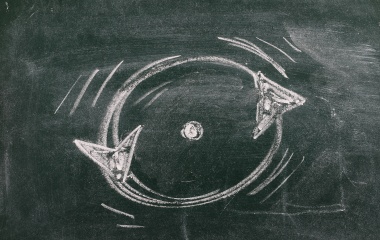
Often it takes our enemies to whip us into shape. “Rav Abba the son of Kahana said: Greater was the removal of the ring [of Achashverosh] than the 48 prophets and 7 prophetesses[1] who prophesied for Israel, for all of them did not return them to good, yet the removal of the ring returned them to good” (Megillah 14a). Moshe, Aaron, Miriam, Yishayahu, Yirmiyahu, Michah, Yonah, and many others all tried to get the Jewish people to improve their moral sensitivity, their concern about the distribution of justice, to be more caring of the poor and widowed, but it had little impact. Even the warning that exile awaited the people was to no avail. The people went on their merry ways, oblivious to any dangers lurking.
It was only when Achashverosh took off his ring, letting Haman know that he was free “to destroy, to slay, and to cause to perish, all Jews, both young and old, little children and women, in one day”, that the Jews truly felt they were in danger. As long as it was their own people chastising them, they remained comfortable in their ways, confident that a father would never truly hurt his children. But once an outsider threatened them—and with annihilation, no less—they began to realize that they were in real danger from an enemy who wanted them dead.
The distinction between our internal battles and those forced upon us by our external enemies is reflected in the words the kohen masuch milchama, the equivalent of the chief military chaplain, would tell the troops before they went into battle. “He shall say to them, “’Hear, O Israel, you are about to join battle with your enemy’ (Devarim 20:3)—with your enemy but not against your brother, not Judah against Shimon nor Shimon against Benjamin, that if you fall into their hand they shall have mercy on you, as it is said, ‘Rather against your enemies do you march, so that if you fall into their hand they will have no mercy on you’ (Mishnah Sotah 8:1)”.
It is the rare person who is able to repent out of love without first repenting out of fear. As Freud noted—and as we see all around us—the power of hate is much greater than the power of love. Our prophets may have had very harsh words to say about us and warned us of impending doom. Yet it was done out of concern and love for the Jewish people, with the hope that such would never actually transpire. In contrast, our enemies act out of hate, looking forward to the day when their threats against us might, G-d forbid, be fulfilled.
While the Jewish people faced external enemies while sovereign in their land, they understood the reasons for such enmity—even if those reasons were misguided. Other nations wanted their land to help enlarge their empire. But with the Jewish people exiled and living peacefully under their Persian rulers, what claim could others have against the Jews? And why hatred? When Achashverosh took off his ring, the Jewish people understood that the hatred directed against them has little to with any actual claim. It is our mere existence that engenders hatred. And the Jewish people understood that now was the time to come together—to send food to others (soldiers?) and gifts to the poor.
That Purim marked, for the Jew, a new awareness of his position in the world underlies the next teaching of the Gemara. “Our rabbis taught: 48 prophets and 7 prophetesses prophesied for Israel, and they did not subtract nor add to what is written in the Torah, with the exception of the reading of the Megillah.” The role of the prophet is to teach, to elevate and to inspire—but not to deal with matters of Jewish law. Yet somehow, reading the Megillah in commemoration of the Purim miracle was an exception. And this exception is not rooted in any biblical source, as none is needed. “If, for being delivered from slavery to freedom, we chant Hallel, should we not do so all the more so for being delivered from death to life?” There was an intuitive understanding that something had changed. Pharaoh may have wanted our slave labour, but Haman wanted us dead. This was an unanticipated development, but one that ultimately had most positive results.
[1] As the Talmud notes, “Many prophets arose in Israel, double the number of those who left Egypt; but prophecy that was needed for future generations was written and that which was not needed was not written”. The Torah is not a book of current events and does not bother recording that which is of historical importance only.



